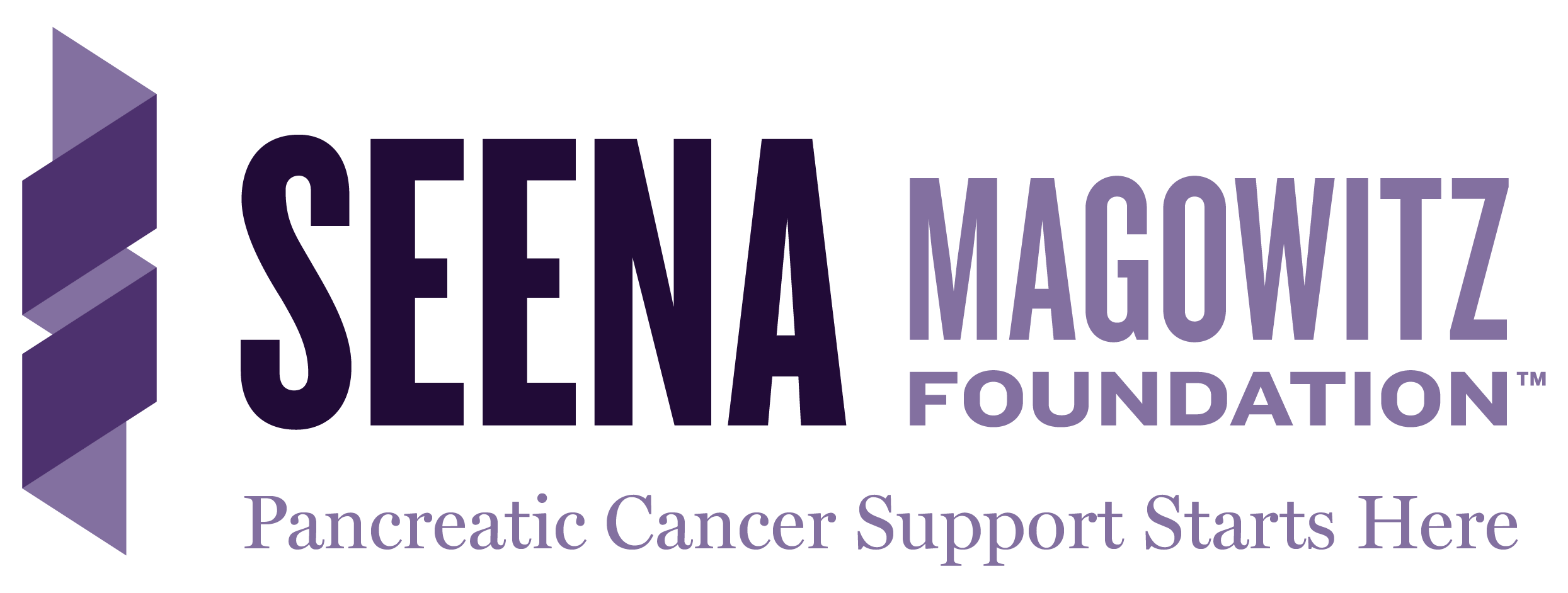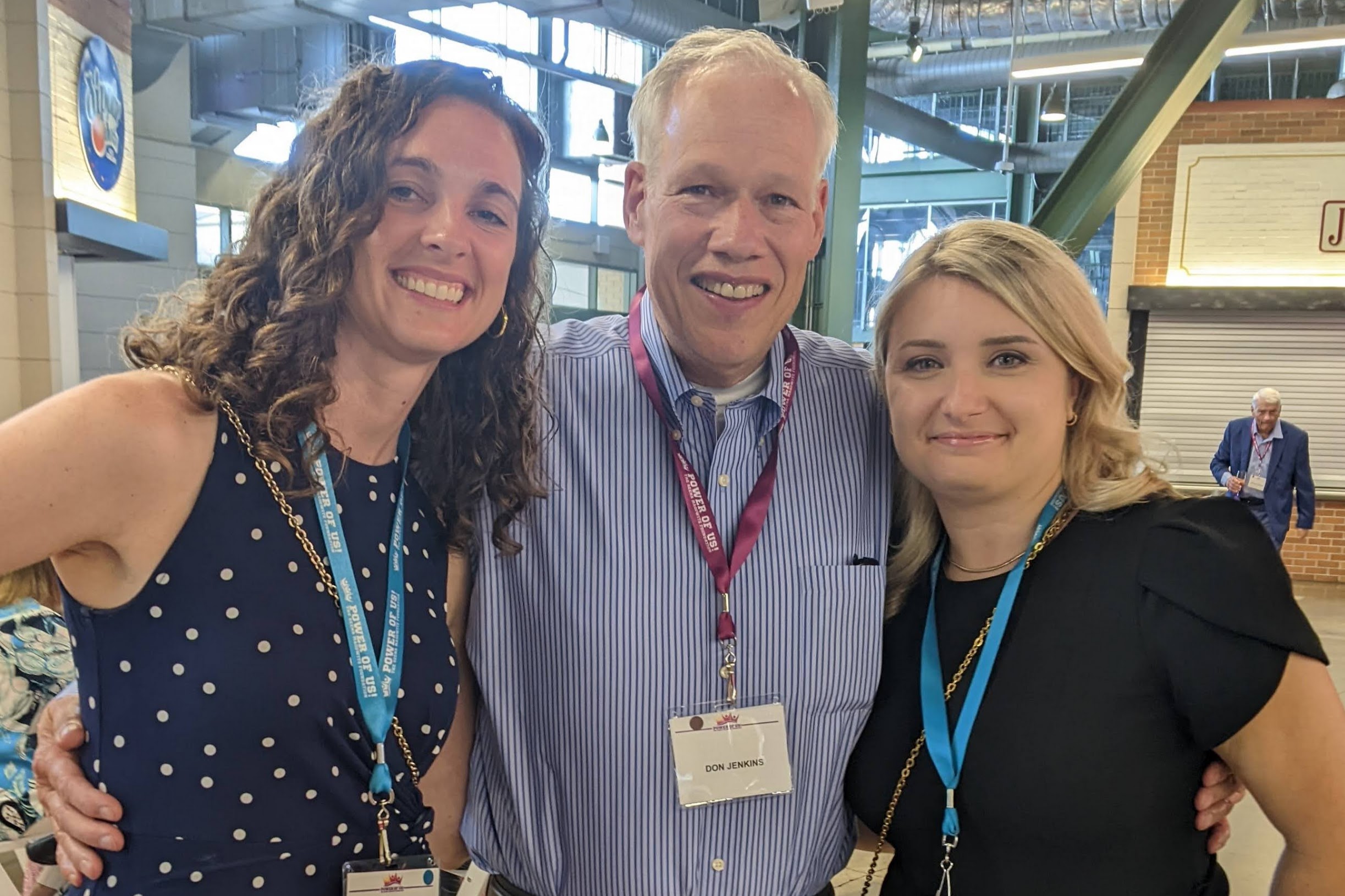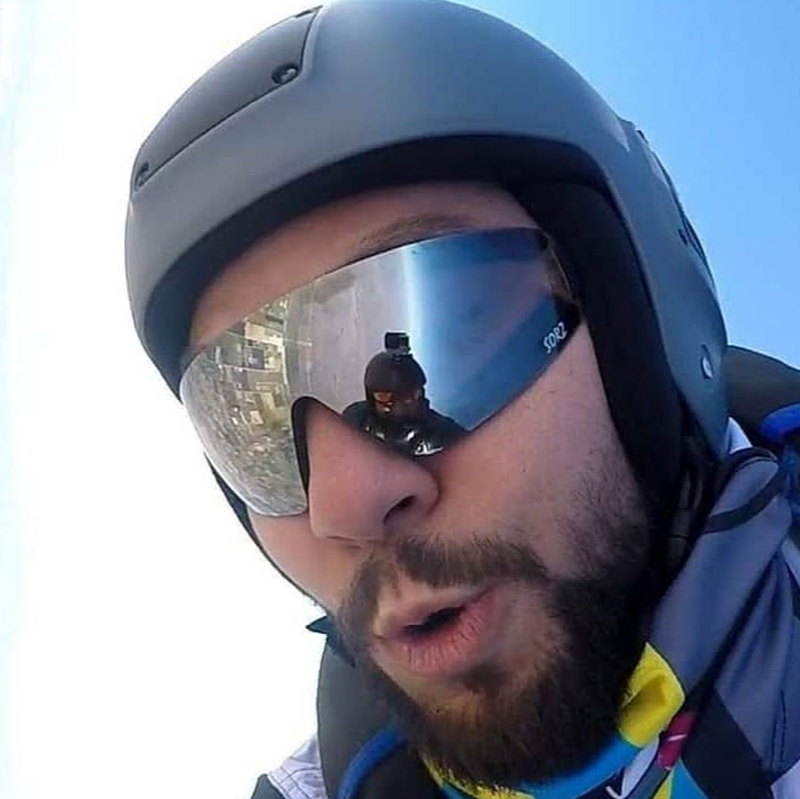Theresa Stern Valentic Pancreatic Cancer Survivor
Julia Brabant, May 2025Two Generations, One Fight: 18-Year Pancreatic Cancer Survivor Theresa Valentic Overcame the Same Condition Her Mother Did Decades Earlier
Many people with pancreatic cancer know little, if anything, about the disease ahead of their own diagnoses, but that wasn’t the case for Moss Beach, California resident Theresa Valentic. Theresa’s own mother had already fought pancreatic cancer long before doctors diagnosed Theresa with neuroendocrine pancreatic cancer in 2007, and both women turned to the same renowned surgeon – Stanford’s Dr. Jeffrey Norton, M.D. – to operate on them. Norton was the same surgeon who operated on former Apple CEO Steve Jobs, and both Theresa and her mother, Melody, overcame seemingly insurmountable odds and are still living and thriving today.
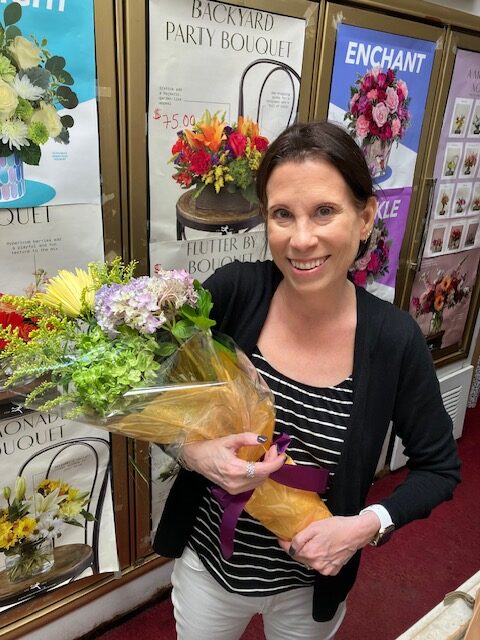
When they tell you you have a 50/50 chance to live five years, you start seeing the world quite differently. Because of that, I’ve felt blessed…really blessed. I felt like this was the biggest thing I’d ever have to deal with, and if I can get through surgery, everything else will be a piece of cake.
While Theresa’s mother battled pancreatic cancer several decades ago, having what wound up being a life-saving Whipple surgery, Theresa’s own diagnosis came in early 2007, with doctors uncovering her cancer during an operation to remove kidney stones. Theresa struggled with kidney stones and a series of other long-term health issues for most of her life, including multiple endocrine neoplasia Type 1, a genetic mutation on a tumor suppressor gene that can cause tumors to develop in the body’s hormone-producing glands. At around age 20, Theresa underwent brain surgery to remove a 10-millimeter aldosteroneoma, a tumor that secreted aldosterone, a steroid hormone. She also has hyperparathyroidism, a condition that creates high levels of calcium in the blood and makes kidney stones more common.
While anyone who has experienced kidney stones can attest that they are monumentally painful, in Theresa’s case, they wound up being a blessing in disguise. Had she not required surgery to remove them, doctors may not have caught her cancer soon enough to operate, potentially missing the narrow window for effective treatment.
Because of Theresa’s kidney stones, though, her medical team found a four-centimeter tumor in her pancreas. Her doctor diagnosed her with neuroendocrine pancreatic cancer, a specific type that originates in the hormone-producing cells within the pancreas. The cancer had also metastasized to her spleen. Theresa’s care team told her she had a 50/50 chance of living another five years, a prognosis she’s already surpassed by about 12 years.
“When they tell you you have a 50/50 chance to live five years, you start seeing the world quite differently,” Theresa said. “Because of that, I’ve felt blessed…really blessed. I felt like this was the biggest thing I’d ever have to deal with, and if I can get through surgery, everything else will be a piece of cake.”
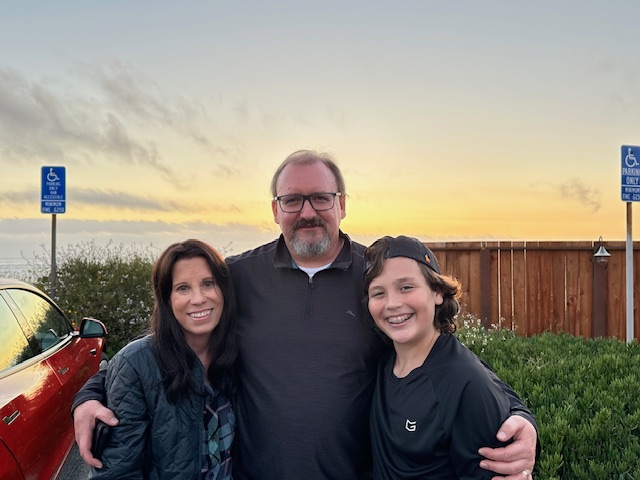
My husband, Todd, was everything to me. He’s an amazing nurturer.
Theresa’s doctors recommended she have a distal pancreatectomy, a complex surgical procedure and an experience she equated to getting “run over by a freight train.” She spent seven days recovering in the hospital, and on the third day, she had what she describes as a powerful vision of her late maternal grandmother. In the vision, her grandmother assured her she would be OK. While difficult to explain, Theresa said the moment brought her a deep sense of peace—something many patients who undergo major surgery and trauma report experiencing in their own way.
While it took time to regain strength and mobility after the procedure, Theresa worked hard to do so, joining her husband, Todd, on walks with her dogs and finding peace and beauty through nature. She also stayed in close contact with her care team in the days, months and years that followed her surgery, having annual MRIs and Dotatate pet scans every three years.
“I’m grateful to the doctors and the medical team I had who were outstanding, both in the hospital and after surgery,” Theresa said. She also credits Todd and the rest of her support system with giving her strength and helping her stay grounded throughout her journey.
“My husband, Todd, was everything to me,” she said. “He’s an amazing nurturer.”
She added that the rest of her family was also a major source of emotional support, with her paternal grandmother visiting Theresa every day during her time in the hospital. Theresa’s mother, father, stepmother and stepfather were also tremendously helpful, supporting her throughout her diagnosis, treatment and recovery.
While Theresa still struggles with chronic inflammation and associated pain, she’s happy to report that she’s had no tumor growth in her pancreatic tumors since 2017. As a result, her current doctor told her he doesn’t need to see her for another three or four years unless new symptoms arise.
Theresa does, however, have nerve damage, and she also experiences urinary retention issues and neuropathy, particularly in her hands. She works with a pain management specialist to manage her symptoms and help maintain a high quality of life.
Theresa has also made some lifestyle adjustments in the aftermath of her surgery and cancer battle, embracing her artistic talents, ending her career in technological sales and going back to school to earn a Minor in mind, body and medicine and a Master’s degree in psychology. She’s also become more involved with the national pancreatic cancer community, taking on a temporary volunteer leadership role with the Pancreatic Cancer Action Network in the San Francisco area and assisting with its PurpleStride fundraising walks, among other efforts.
Theresa also hopes to highlight some of the challenges people with pancreatic cancer face when undergoing treatment, urging medical professionals to treat people with serious conditions with more empathy while reminding them that they are working with people during some of the toughest moments of their lives.
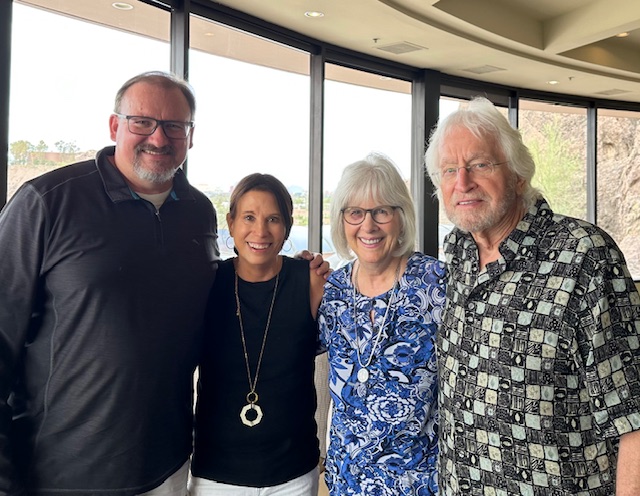
I’m proud of what I’ve been through. I see cancer survivors as heroes; as warriors. The fight is worth it, so fight ‘til the end.
Throughout her journey, Theresa has gained valuable perspective on her own mortality, and she also has some words of wisdom she hopes might help others.
“If you’re waiting to do something – have kids or whatever it might be – go for it, and go for it now,” she said. “Nobody knows how long we have. And have hope – hope makes the body stronger.”
She also remains passionate about encouraging empathy within the medical community and advocating for better support for patients as they navigate the physical and emotional challenges of treatment.
“I’m proud of what I’ve been through,” she said. “I see cancer survivors as heroes; as warriors. The fight is worth it, so fight ‘til the end.”
Both Theresa and her mother continue to live full, meaningful lives, serving as living proof that, even in the face of pancreatic cancer, hope, strength and perseverance mean far more than statistics.
